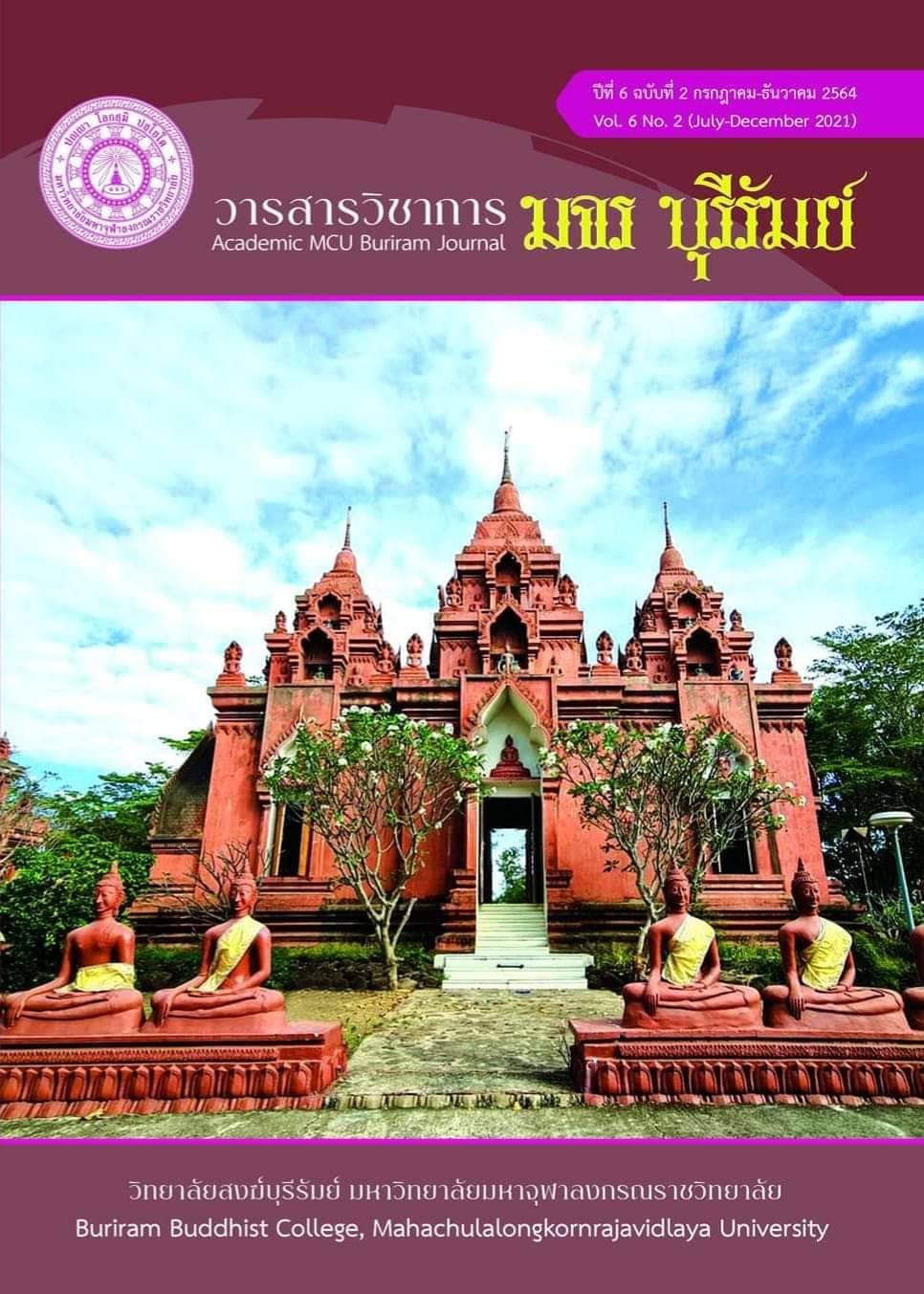An Analysis of the Duty of Teachers and Disciples in Theravada Buddhist Philosophy
Keywords:
Duties, Teachers and Students, Theravada Buddhist PhilosophyAbstract
This research article has the objectives: 1) to study the duty of teachers in Theravada Buddhist philosophy, 2) to study the duty of disciples in Theravada Buddhist philosophy and 3) to analyze the duty of teachers and disciples in Theravada Buddhist philosophy. The research model is documented research and presented research results by means of an analytical descriptive method.
The research result finds that:
The duty of teachers and disciples in Theravada Buddhist philosophy in general whether it is a meaning of monks and lay people, teachers are responsible for teaching disciples to have both worldly and spiritual knowledge, have a being friendly towards disciples, have a training and teaching disciples to have knowledge of various arts and sciences according to the knowledge and ability of the disciples to strive according to their intelligence glorify the disciples and to help and support the disciples. Whereas, the duty of a disciples in summary are study with respect obey the teachers and lay-up teachers. Good disciples in Buddhism must be a knowledgeable person, constantly develops knowledge according to the teachings of teachers, respects and obeys and serves them. The duty of teachers and disciples in Theravada Buddhist philosophy are duties both for themselves and for society. One's duty is to follow the Kalyanamitta, Paratoghosa, Yonisomanasikara, generosity and filial piety which is the ethical principle of Theravada Buddhist philosophy. When one has a correct opinion and maintains oneself well, then he can perform his duties towards others involved, i.e, behave appropriately according to the principles of interpersonal interaction according to Theravada Buddhist philosophy which pays attention to the rightness and goodness which is the value of society and religion feelings of others generosity and reward the goodness of others that they are involved in.
References
เดือน คำดี. (2534). พุทธปรัชญา. พิมพ์ครั้งที่ 1. กรุงเทพมหานคร: โอ.เอส. พริ้นติ้นเฮ้าส์.
นิราลัย. (2536). 5 ดีสู่ความเป็นมนุษย์ที่สมบูรณ์. กรุงเทพมหานคร: ธรรมสภา.
บุญมี แท่นแก้ว. (2546). ความจริงของชีวิต. กรุงเทพมหานคร: โรงพิมพ์โอ.เอส. พริ้นติ้ง เฮ้าส์.
ฝ่ายวิชาการ กองศาสนศึกษา กรมศาสนา กระทรงศึกษาธิการ. (2537). นวโกวาท. กรุงเทพมหานคร: โรงพิมพ์การศาสนา.
พระนรินทร์ สีลเตโช. (2556). เรื่องการศึกษาวิเคราะห์หน้าที่ในทิศ 6 ตามหลักพุทธปรัชญาเถรวาท. วิทยานิพนธ์พุทธศาสตรมหาบัณฑิต. บัณฑิตวิทยาลัย: มหาวิทยาลัยมหาจุฬาลงกรณราชวิทยาลัย.
พระธรรมปิฎก (ป.อ.ปยุตฺโต). (2546). พุทธธรรม. กรุงเทพมหานคร: โรงพิมพ์จุฬาลงกรณราชวิทยาลัย.
สุนทร ณ รังษี. (2550). พุทธปรัชญาจากพระไตรปิฎก. กรุงเทพมหานคร: โรงพิมพ์จุฬาลงกรณ์มหาวิทยาลัย.
Downloads
Published
How to Cite
Issue
Section
License
ทัศนะและความคิดเห็นที่ปรากฏในบทความวารสารฉบับนี้ถือเป็นความรับผิดชอบของผู้เขียนบทความนั้น ไม่ถือเป็นทัศนะและความรับผิดชอบของบรรณาธิการ





